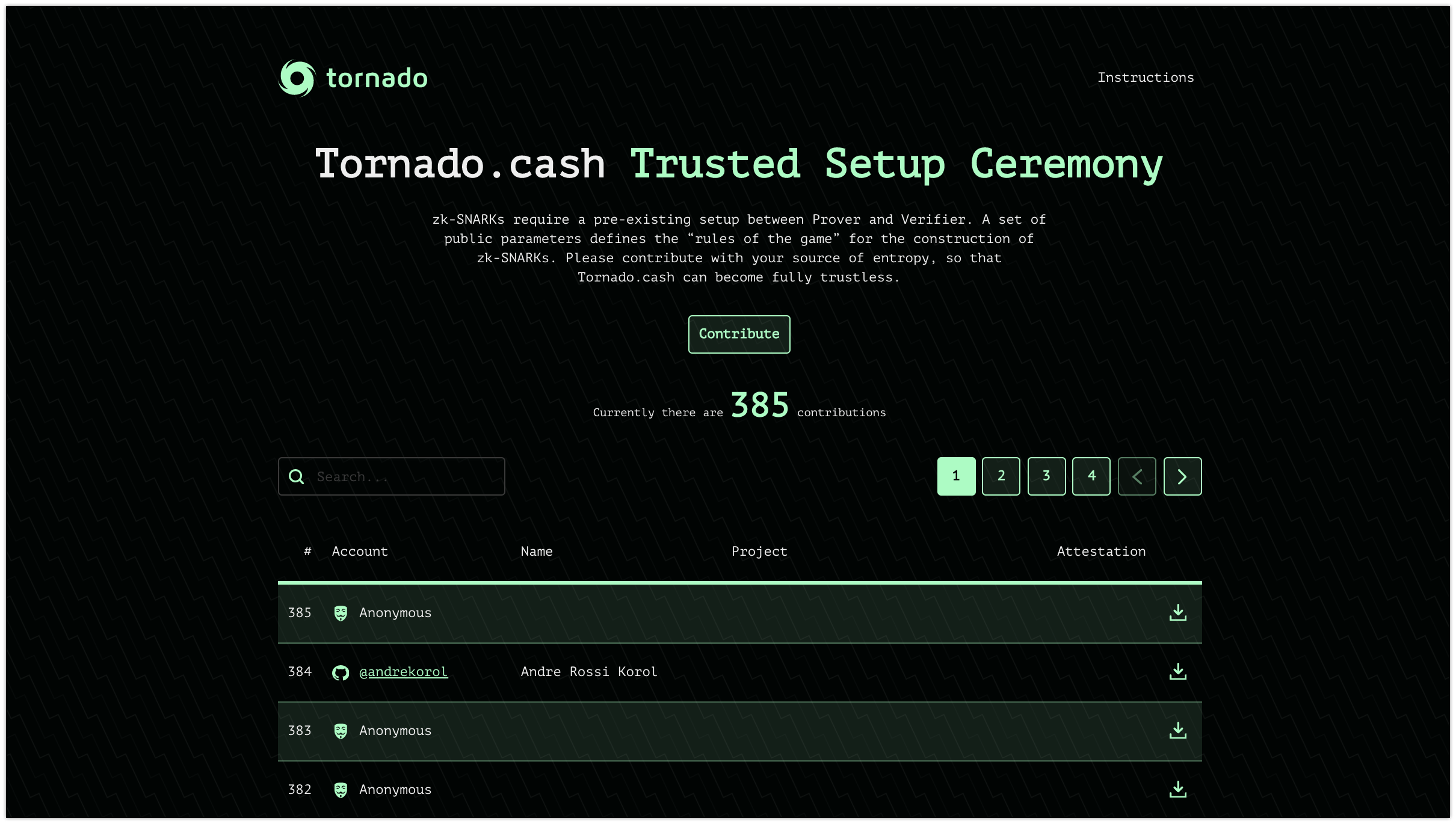
Introduction to Tornado Cash
Tornado Cash is a decentralized and non-custodial smart contract-based mixer built on the Ethereum blockchain. It utilizes zero-knowledge proofs to enable users to mix their Ethereum and ERC-20 tokens in a completely private and anonymous manner. In this blog post, we will explore the concept of zero-knowledge proofs, the history of privacy on the blockchain, and how Tornado Cash works, as well as controversy around it.
Introduction to Zero Knowledge Proofs
Zero-knowledge proofs, also known as zk-SNARKs (zero-knowledge succinct non-interactive arguments of knowledge), is a technology that allows one party (the prover) to prove to another party (the verifier) that a statement is true, without revealing any additional information. In other words, it enables one party to prove possession of a certain information, without revealing the information itself. Zero-knowledge proofs were first introduced in the 1980s by researchers Shafi Goldwasser, Silvio Micali, and Charles Rackoff, but it wasn't until the emergence of blockchain technology and the need for privacy on the blockchain that it gained significant attention. Tornado Cash makes use of zero-knowledge proofs to enable users to mix their Ethereum and ERC-20 tokens in a completely private and anonymous manner. The process works by allowing users to deposit their tokens into the Tornado Cash smart contract, and in return, they receive a unique "note" that is a proof of ownership of the deposited tokens. These notes can then be traded or exchanged for other tokens, without revealing the identity of the original owner. The Tornado Cash smart contract is completely open-source and decentralized, which means that it is not controlled by any single entity and is available for anyone to use. This also means that it is not subject to censorship or shutdown by any government or organization. Despite its many benefits, Tornado Cash has also been the subject of controversy. Critics argue that it may be used for illegal activities such as money laundering or funding terrorism. Furthermore, the smart contract is not regulated and anyone can use it anonymously, which could lead to illegal activities. Additionally, the lack of KYC (Know Your Customer) and AML (Anti-Money Laundering) regulations, can make it an attractive option for those looking to avoid detection by the authorities. In conclusion, Tornado Cash is a decentralized and non-custodial smart contract-based mixer built on the Ethereum blockchain that utilizes zero-knowledge proofs to enable users to mix their Ethereum and ERC-20 tokens in a completely private and anonymous manner. The technology of zero-knowledge proof is an important advancement in the field of blockchain and cryptography, which has the potential to revolutionize the way we think about privacy and security. However, it also raises important legal and ethical questions and it is important to be aware of its potential for misuse.